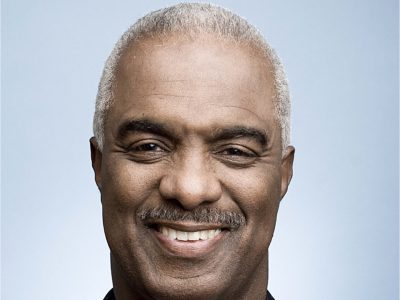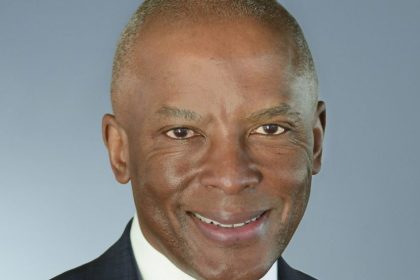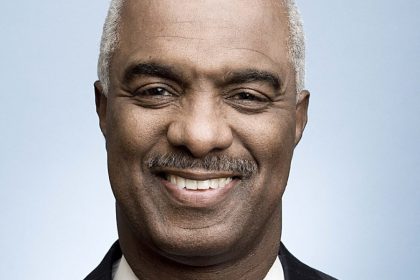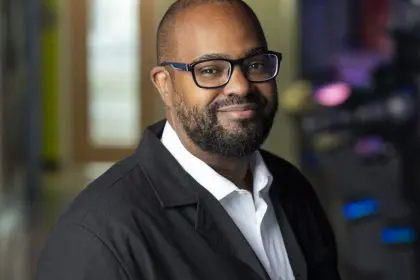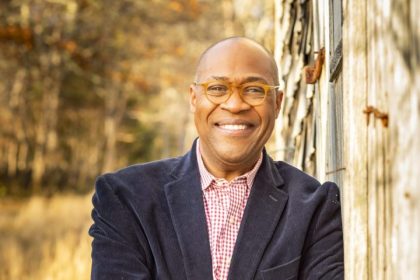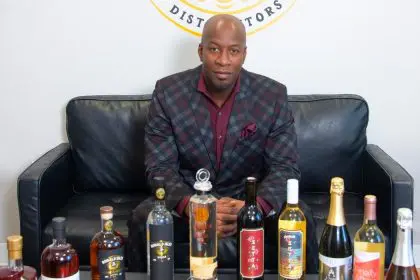
In the hazy midday light of a neighborhood pitch in Atlanta, Sekou Thornell watches as a gathering of young players move fluidly across the field, their interactions transcending mere sport. For Thornell, creative director and founder of Kitboys Club and brand marketer for Atlanta United, these moments represent the culmination of a vision years in the making.
Football has always been more than just a game to Thornell, an adidas HBE honoree whose career spans multiple dimensions of the sport’s culture. His deliberate approach reflects the thoughtfulness he brings to his work as he operates at the intersection of brand strategy, product development, and community organizing.
With Kitboys Club, Thornell has created what many describe as a platform for authentic football culture — one that resonates particularly with communities historically underrepresented in American soccer spaces. His day-to-day work encompasses everything from product design and experiences to art direction and editorial storytelling.
At the core of Thornell’s professional identity lies a profound belief in the power of sport to forge community bonds. His guiding principle centers on creating meaningful connections through shared experiences, particularly in spaces where diverse communities can deepen their relationship with fútbol over time.
As both a creative strategist and lifelong student of the beautiful game, Thornell continues to craft environments where football culture thrives, offering belonging to those who previously stood at its margins.
What role do you believe Atlanta plays in shaping the future of American soccer, especially for Black youth and creatives?
First and foremost, Atlanta’s always been a hub of black culture. For us, if you look at across the spectrum definitely in the sport, I come from the sporting side of it too, so a lot of our talents always been there.
It’s just always been like either a lack of resources or a lack of a way out. From the brand side of things, we took that underdog mentality that Atlanta always has. We always feel like we number two. But we really should be number one.
You carry that with you, and then you kind of push that to the forefront and allow yourself to push your boundaries a bit. So I think for me, we take the swag, we take the ethos we take just the culture of the city in terms of, it’s a hub for black excellence as it stands all the way from civil rights to sports, you name it.
It’s always been there. We take that with us, even if you look at a lot of the club in which is built from, is a lot of the same black youth I played with growing up in the game of soccer, and we just kind of banded together and said, we’re going to find our own way, and that’s the Atlanta spirit.
Partnership with Adidas, this whole idea. How does that empower you as a cultural creator and Black soccer players?
It just empowers a conduit. From our standpoint, we’re representatives of our culture, especially black culture here in the city. A lot of the time, something either lacks resources, infrastructure or one of the two.
We’ve done a really good job of building that infrastructure, finding cultural ways to bring more black people into the store and find love through it, whether it be through sneakers and fashion, whether it be through the music side of things, whether it be through entertainment.
We use that as cultural, adjacent marketing efforts to kind of hey! You can find some love in here. Come, follow us, come, join us. You can find some love in it. I think, for us, it’s like we just needed a small megaphone to make sure, we just putting that on a broader scope and kind of expand. Ultimately, too, we need a lot more impact on the grassroots level, regardless of the industry you from.
Our ethos from the day one is to find ways to impact our grassroots, but sustainably. And we just lack the resources to do so. They’ve just kind of been an effort to be a conduit to what we are, and then again, a conduit for us—what we are to the city and a lot of the Black youth ballers, whether they’re still in their playing days or in the creative industry of it.
How do you see your work influencing the next generation and inspiring them through this intersection of collaboration and cultural movement?
It’s honestly the latter man. Every step of the way you need a concept to see what the boundary is and how you push beyond it. I think that’s our biggest ethos as a brand. It’s like we only knew the the realm of soccer from one standpoint. It was on field, and even there we were the minority.
So when it comes to platforms, and how you build a brand, or infiltrate the game of soccer, we wanted to be the proof of concept and then understand what the box is, so we can get outside of the box, like what is that next step? Because ultimately, at the end of the day someone has to lead the charge, and someone has to follow suit. That’s the cycle of life to us.
Whether it be something directly we do, or it might just be something as simple as fashion in the game, or it could be just music and incorporating it. I don’t know bars and stuff like that. But at the end of the day for us it’s like you gotta be the proof of concept. You gotta leave the charge, and then somebody’s coming up under you, and that’s how the cycle of life keeps pushing in, and we keep growing together.
What did it feel like when you first saw your vision come to life in both partnership and product, and how did it shape what you felt you could achieve next?
In hindsight, it was just the battery you needed to keep going, a lot of people and a lot of brands, a lot of platforms sometimes you don’t get real success. Year five, year six, year seven. We kind of started in 2017, 2018. So through time you’re like, I have something in my mind. I feel like it could work.
So then, you get this confirmation, this blessing to again do the work that truly matters to you which is purpose driven and on top of that, you get the the confirmation you headed in the right direction.
That means the next ten years I got another battery to go ten more. At the end of the day, it’s like, how do we sustain the journey and just not quit? It allows us to know that we’re heading in the right direction. We got the right North Star. It’s up to us to cultivate it, as we understand our responsibility. But at the end of the day it’s like, sometimes you just need that confirmation to just wake up and go again. Go at it, and just feel like you got that love for it.
Because it will be hard, like we all know and it’s never easy. But when you got that battery you wake up every morning ready to go again, that for me is what this project is done for us.
How important is proof of concept and why be small before you just throw all your money at one idea?
Things evolve so quickly, especially now, you look at today, you look at media like it’s important to know yourself before you can truly create something that impacts others. I’m a big believer in that. So, I’m going through life where I’m changing a bit of an identity, I come from playing side of it like that’s all I ever know.
I had hope, dreams. For me to go against a concept and create something that expands to other people. It’d be unfair because I don’t have a full perspective on what it takes, the needs of the people, the ways, the pipelines to do so. It takes development to truly be a master.
I needed the 10,000 hours, I needed a training environment to make sure that, what I do is for the community, and I can handle that responsibility in the best way, because at that point I don’t think I would be, and nobody is, like you don’t want to be responsible for something, and you don’t truly care for it. Learn the ups, the downs, the nuances to lead somebody down that path, and then what, they end up same place you are. It takes time.
The 10,000 hours is very important journey, and in hindsight what I realized, the more you love that journey the easier it becomes, and you still don’t get to where you need to go.
Curiosity. How do you remain curious as a creative and why is that word important to vision?
The curiosity fuels the growth. It’s very easy to get complacent in a lot of things. For curiosity especially, we took a gamble on a bit of a dark horse, at the time soccer is still a little bit underground. It’s not the most prominent sport here. It’s the underdog in that. And I think for us, the curiosity of finding the proof of concept. Maybe we’ve seen it overseas at one time. Maybe we’ve seen it.
This soccer player got this sneaker on. Okay, there’s an intersection there. EAFC got the same dance that we danced to out here in Atlanta. There’s an intersection there. So the curiosity comes. We almost as creative as we need that to find like, oh, we can peel that layer back. Oh, we can go this way with it, or we can go that way with it, and without that it doesn’t allow you to fully sprout and grow. If you think it only goes one way, you’re only gonna understand it from one lens.
Ultimately the curiosity builds the perspective. And when you have that well rounded, just more outward perspective on which lanes you can go. You can go left hand. You go right hand, when you understand those then it’s like, okay, now I’m charged to try the concept.
Sometimes curiosity leads to failure, and the only way you can truly like get past the failures, if you see, like the other option, the learning lesson out of it. So, it’s curious to figure out why you feel curious to feel why you want, and just keep going, from that perspective.
How do you draw inspiration from creative heroes like Virgil Abloh and others to say, “I hear you, and now you can see me”?
The best thing Virgil did for us, and again, he was one of my early pioneers, and he made you feel like you could do it, too. And what that’s reverse translated as is simply like I’ma pour back into you and show you that. Okay, this is my journey. You see where I come from. You see how I got to where I went.
It’s just the same for the same person next to you. I just took it this way, and I took it this direction. What he did was always find sustainable ways to give back and pay homage, which, again, one of our biggest things is the ethos in terms of the the club itself.
But he made you feel like you could do it too. So when you think about the person that’s coming behind you, it’s like, Yeah, I’m gonna break down this barrier and I’m gonna show you how I’m doing it. But at the same time, here’s some resources. At the same time, here’s this community event, so you can get involved. At the same time, here’s all these activations of how I’m impacting my community when he built that skate park in Nigeria, people are like Yo, that’s different.
Why, you think Africa, is like the skateboard. But again, that’s his way of giving back. And they did. They used it, and they enjoyed it. A lot of people wouldn’t think that unless you truly know who your roots are, where it comes from and the things you enjoy. He’s always paid it back in sustainability, but he’s also made you the way he led his journey and what you believe in as the creator of Virgil Abloh is like, I can do it too. And it’s just how you really use that message from that perspective.
When you wear your armor as part of a club, what message do you want to send to the world?
What I’m saying is, everything I ever learned through on the picture in life was done through other people, like everything I learned on the pitch was through ten other people I played with, no matter what idea you got, no matter what perspective you might have, teamwork make the dream work.
You can’t do anything in this life by yourself. And the brotherhood concept of it is what really mattered the most to me, honestly and truly it was just an outlet for a lot of the people I grew up to find love beyond the game, and just make sure your identity wasn’t too shaken or you wasn’t going through it.
Post yours, not playing anymore, it’s a hard transition. But when you a unit and you all aiming for the one North Star, you find solace, and other people around you fighting for one mission the same thing you would do in sport. We just found a different angle at it.
Ultimately, the goal is that everything you need to do is through somebody else, and you gotta pour into people and that’s the whole cycle. Life too, in situation like love, brotherhood and making sure you’re paying it down for it. Like all those things are like the way we need to move. And yeah, it’s not ego. It’s never ego, it’s more so how do we contribute to ourselves and the things behind us.
It’s not a hundred point game. How important is it to just focus on that one score at a time for anybody who’s really trying to make it?
The the hardest thing I had to learn, too, and I think this resonates with the same sentiments like when you up the score, even if it’s plus 2 that’s 1 foot in front of the other. What people don’t really understand is, it’s never really the talent or the perfectionism of it. It’s the one in front of the other. One day at a time. One failure! Oh, that’s a win! That’s a failure. Oh, that’s a win. But no matter what goes around and what you experience, it’s literally the motion of putting one foot in front of the other.
What a lot of creatives and a lot of people and sometimes we suffer with like damn that! L. Took us a couple of steps backwards we might rest a bit, or, oh, that win was really good. We climbed them out.
We got to the top, but now I’m tired. Theoretically speaking, the whole goal was never to a 100%. I think a hundred percent, all times is a misconception you’re going to burn out, you’re gonna get injured, 70% consistently for the next 10, 12 years is either time or consistency.
You think I spend a lot of time getting there, or you’re going to be consistent enough to where you can get there. But the end of the day you still gonna get there. I think that’s what it more so speaks to, is that one foot in front of the other. That’s the consistency you need to go, and that’s the the place you need to root yourself in, not what happens from a result standpoint.
When we think of the title Creative Director, did you ever believe or think that you would be a creative director?
At first I didn’t. A lot of it was paying homage to Virgil. Actually again, when you see, at the end of the day. He was a creative director, but nobody really knew what that title meant. And now that I’m in a bit more of a business professional standpoint. I see what the role of creative director technically is.
For me what I didn’t think I would, but the more I peeled back again. My pops is big in the seventies and eighties era. He was a B-boy, Run DMC, all Adidas. You wouldn’t catch him not wearing Adidas. He’s a graffiti artist, so he’s creative by trade. He’s a barber in Atlanta, always own his own shop. But that’s where the creative side of it really came about.
When I understand, my favorite role in the pitch, is the number 10, so which at the number 10, basically, you the conductor, you conduct the tempo. You play at right, you conduct which we go left, right backwards front. It became a combination of 2 of those perspectives. And then it led into creative direction. So again, like I’ve always had a creative background, that’s always been.
I come from a family of painters and artists. But when I think about my style on the pitch. That’s when I really began to think about the conductor, and like, what does he do? He creates the play.
For me, that’s when the direction part of it like which way we gonna go. This is how we need to push it. That came in and that’s what I thought a creative director was in hindsight is really just the guy who controls the creative department, graphics design. But when you think about the nuance term of it now, it’s like, Yeah, you, the conductor of the ship. You are the creative director, how we go creatively.
No, it’s one of the best. It’s one of the coolest titles I’ve had, and it’s something I have in my business. I work at the club now as well, Atlanta United. I kind of play conductor there too, and it just gives me a different environment to do so.
What would the title of your graduation speech be, and what challenges would you give the next generation?
Oh, that’s a good one. I like this question. Think I would title it, what’s your purpose? But when I would give the speech, it would more so be about how are you driven in life beyond yourself? What are you doing? Cause like when you really think about what truly matters in this life.
You don’t carry it to the grave. Sometimes it’s legacy, sometimes it’s what you build, sometimes it’s the message you carry, sometimes it’s all of these things. So like when I asked the question, what’s your purpose is like when you stepped outside of yourself? What was your legacy and what would that truly mean? and what would you want to create? I think that would be the synergy of it.
And more so, challenging people to like, you got this degree is for you, and at the end of the day you could carry it with you. But what does that mean? What are you doing with that beyond the money that goes in your pocket, and I think when we all start to think like that, then we owe a responsibility to the man next of us, and then we all collectively, as a human race for that part.
Grow up and get better together and share more love and more, just bonds in general. I think we’re really separated now, too. I think that’ll help overall just build things a bit more.
What is it like in ATL with the expectation for young entrepreneurs to succeed and support each other in the creative community?
That’s the most beautiful part about the city, like one thing about it, too, is like when somebody sees you working in a direction they want to support that, they really do want to see you fly such a tight knit city to the point where, like you got some motion, they right behind you, helping push that motion. I think for us, is just to understand that we all occupy a piece of the pie. And the greater mission here is the collective to grow.
When the collective grows, then we can be looked at like, yeah, we New York. We L.A, we have our own persona the way we walk, the way we talk right at the end of the day Atlanta has given us so much as a city. I think part of our responsibility is making sure that we give some back and give some back to the stuff behind us. I think it’s this, the building out of this building out the block concept, it’s no different. Collectively, we have to continue to find that as a creative community, and once we have infrastructure, then our dollars can go into the right places.
Then the right people get acknowledged, for the accolades. It’s not this agency from New York trying to do something differently out here right like. And we kind of get this run over. I think ultimately, we just need to make sure we got a responsibility to our piece of the pie and know that there’s a mission beyond us, and when we do that, everything will come up, and we’ll all benefit from that holistically.

